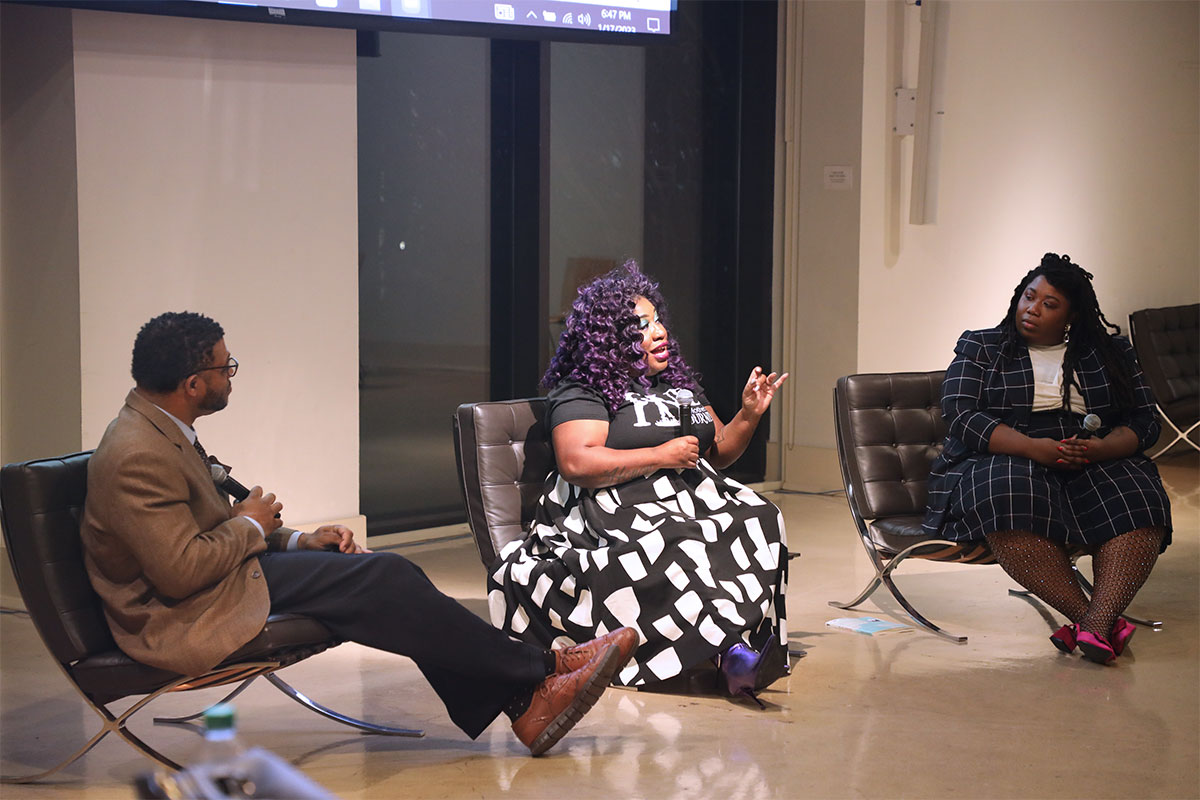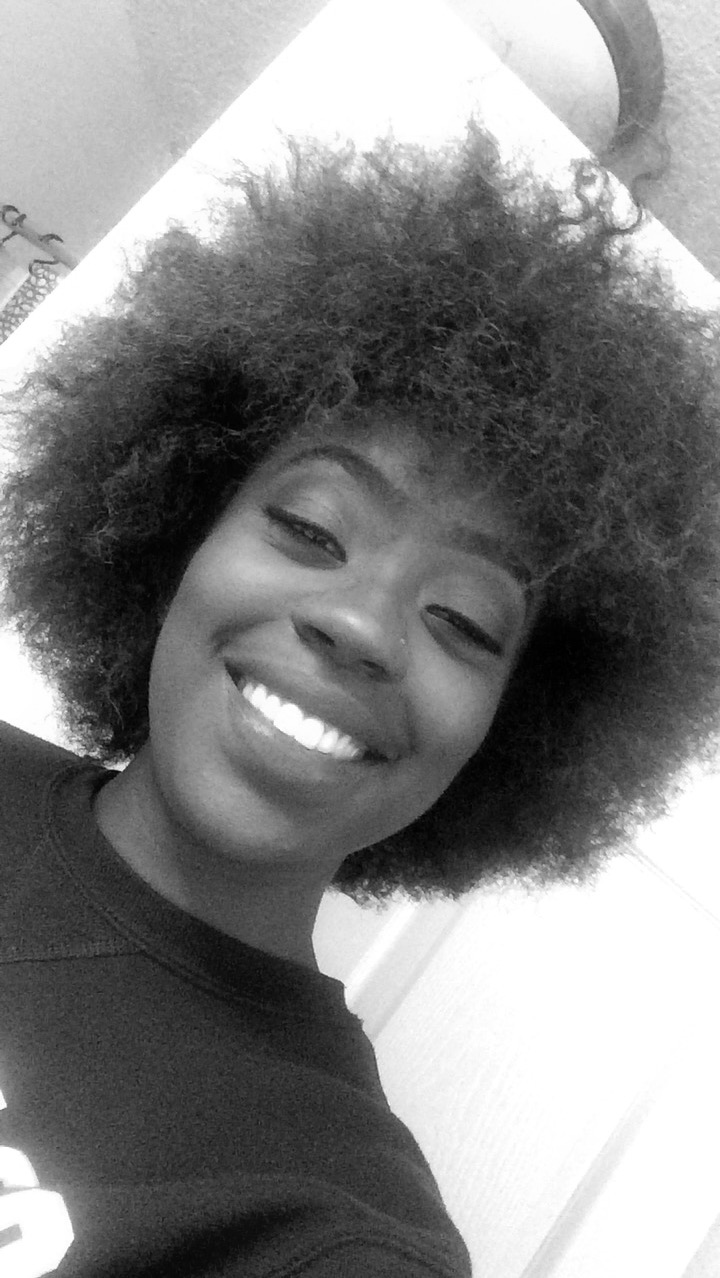JACKSON, Miss.—Markers, crayons, pencils and construction paper lay on tables inside the Mississippi Museum of Art. As guests trickled inside for the museum’s celebration of National Day of Racial Healing, the prompter at the front of the room displayed questions surrounding safety, power, racial healing and what a non-racist world looks like.
The W.K. Kellogg Foundation launched the special day on Jan. 17, 2017, and is observed every year on the Tuesday following Martin Lurther King Jr. Day. It is designed as a time to contemplate shared values and create a blueprint for how to heal from the effects of racism.
The Mississippi Museum of Art’s celebration, “Art and Voice As Healing,” featured food, crafts, and a panel with filmmaker Talameika Brice, writer Kiese Laymon and Black, queer storyteller Aurielle Marie.
Guests ate salad, soup, dinner rolls and cookies while the trio answered questions in the form of drawings with the art supplies on the table. After the meal, Aurielle Marie recited Saidaiya Hartman’s “Wayward Experiments”.
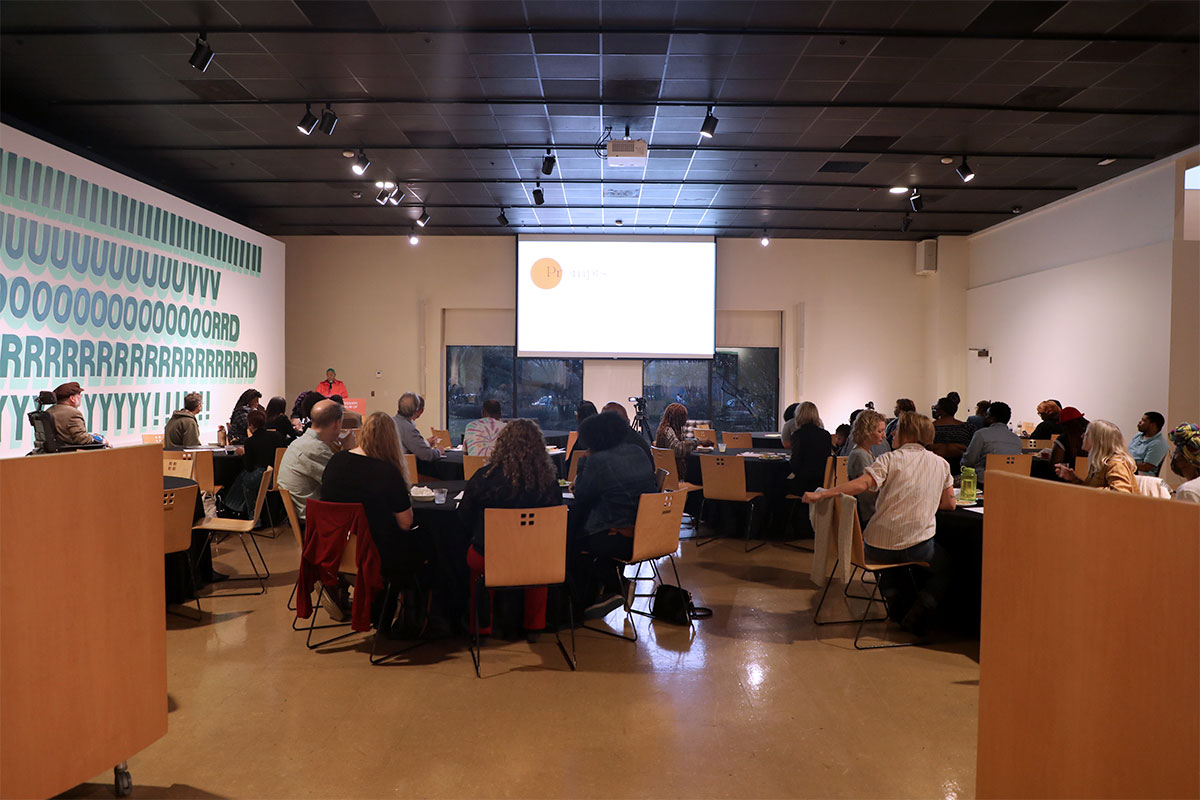
“There is somewhere a Heaven just for Black girls, and wherever it lives the graves are empty there, soft with dew and satisfied by bodies of laughter instead,” Marie recited. “Their oceans return to the shores withhold clusters of us or we ship our mothers love letters and the salt we gather at the feet of magnolia trees. We empty the blessed sun into our thighs and dream. We choose this heaven, one that doesn’t quiet our other selves.”
“… We pray to a God who wants no sacrifice,” she continued. “Only ask that we sound our names the right way. Only asks us to stay awhile, and if we ever leave, keep the door open for a few more girls too. Say it is the end of days, and all the world has left is us. Black girls run our hands over the weak, making batteries outta honey and mud. Say you’ve moved on and your legacies will be written with them hands right there.”
“Say we will shrivel you or shine you. Say your fear is warranted now. Yeah. Lock the doors. Yeah. Lock the doors when we come down our blocks,” Marie said, approaching the end of the poem. “But you can’t cause you dead. … Say your precious lawns you overrun with lavender. Say, ‘honeysuckle.’ Come on, say, ‘honeysuckle.’”
“Honeysuckle,” the audience responded.
“Say, ‘honeysuckle.’”
“Honeysuckle,” the crowd repeated.
‘Not Just the Sum of My Parts’
Aurielle Marie’s background in community organizing started at age 19 after police shot and killed Michael Brown in Ferguson, Mo., in 2014. Marie, an Atlanta native, said she is blessed to come from a city where the legacy of civil-rights organizing and community justice is so accessible.
“I think what I had to reconcile was that there was so much further to go—because outside of an insulated community in Atlanta, there lies power imbalances,” the poet and essayist said. “And for me, I had to confront this behemoth of police brutality, racial inequity, classism and the very real monster of gentrification that’s wreaking havoc in a lot of cities and towns right now.”
“(I had to confront) how the world sort of orients itself in antithesis to Blackness and how feeling like the world is an antithesis of you is a very, very fragile place to be,” Marie explained.
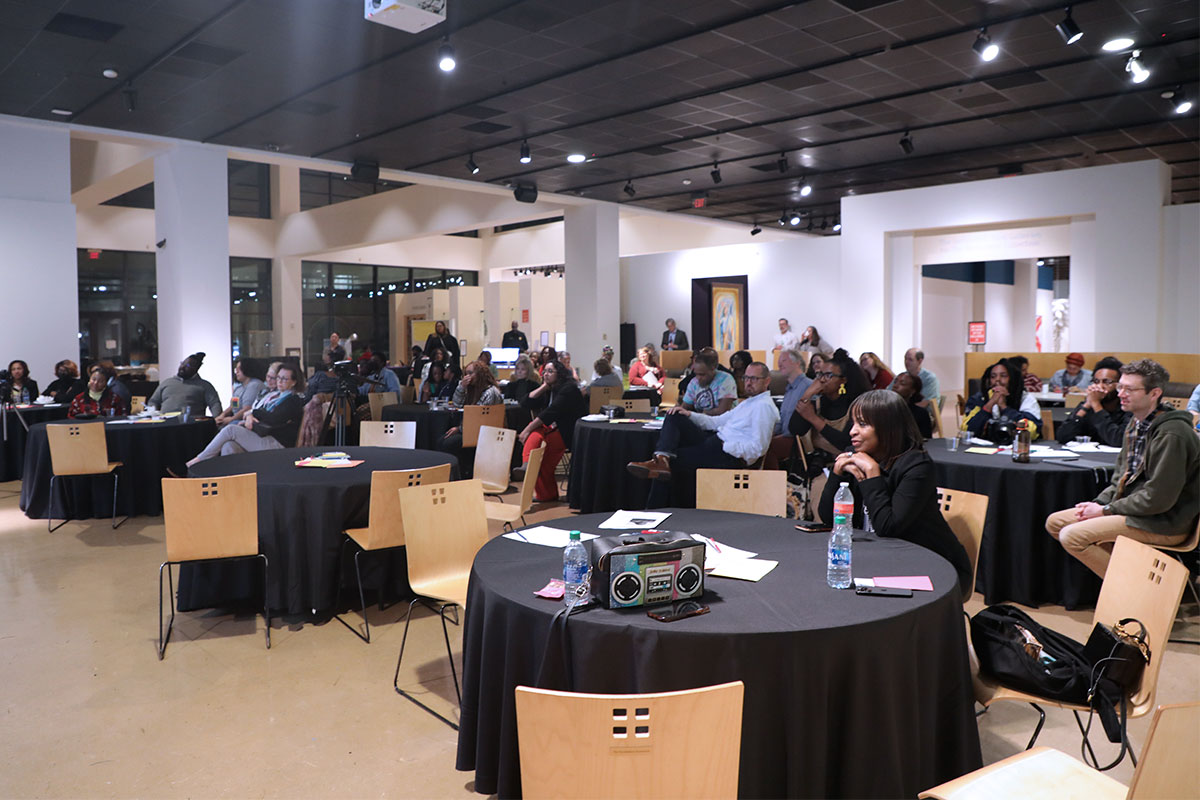
Kilmichael, Miss., native Talameika Brice’s son was born during the Ferguson, Mo., riots in 2014. Later on, she ended up visiting Ferguson and standing in the spot where Mike Brown’s body lay for four hours. The filmmaker said she lost a lot of friends and business when she became “loud” about racism.
“To go from that to being in a space where I can talk about this now and being in a space where I can own my anger now and (light) MAGA hats on fire—the way that touched the absolute world—when I’m looking in my inbox and I have people from India saying, ‘I never completely understood the Black experience until I saw your photo,’ it really goes back to how art impacts the world,” the mother of two said.
Brice, who is also a painter, said she believes it is important to make her art visible to those who both do and do not identify with it. All in all, she needs art to breathe, and without it, she feels stifled. She does not feel like she is living without art, she expressed.
“To get to the point where someone else says, ‘I see you,’ in the place where they normally don’t (is significant),” Brice said. “When you think about the image of the migrant mother when it came to welfare with the New Deal, of how that was accepted—and then (when) you had (Ronald) Reagan come along in the ’80s and create with words this image of the welfare mother—people turned on their own interest for this idea.”
“Art is how we get free,” she asserted.
The filmmaker said that in her time here, she cannot sit and be silent about the types of tragedies she sees because she wants people to know that they happened and that they hurt. Art is the sense of knowing that she was here and that she mattered, Brice explained.
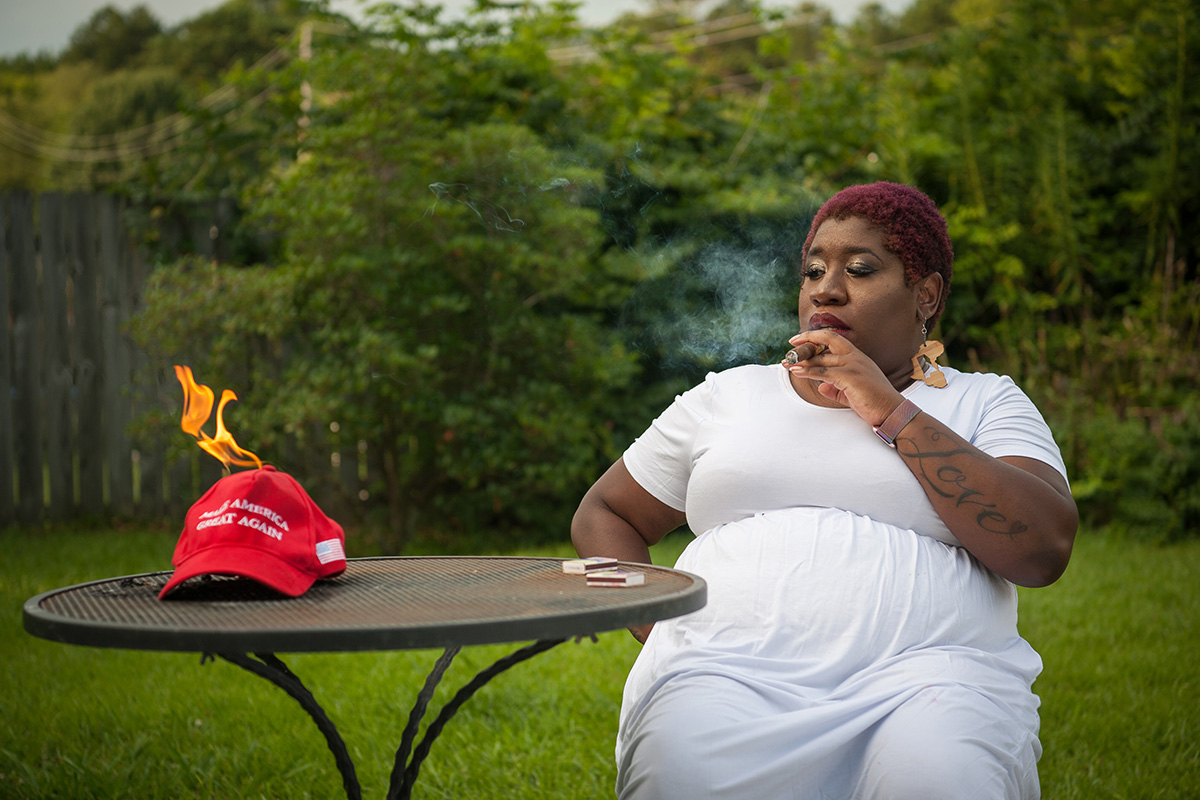
Marie followed Brice, stating that art is how she affirms for herself that she is here and not just the sum of her parts. She defines and articulates herself to shake off other people’s projections.
The poet and essayist finds a feeling of defiance in not considering the audience and in not trying to articulate herself to be understood by white people or non-Black people.
“We are always informed by the biases that have been placed upon us, and so if I try to articulate myself to be read well by someone who might not have my shared experience, I can fall victim to those biases,” the poet explained.
‘Whole Self’
As Talameika Brice was growing up, people in her hometown could always identify her familial ties based on her physical features, and she hated it because she always equated those traits and their comments with being ugly.
“I know for me, when you talk about internalized racism, my acceptance of my face, it has been a journey for me,” Brice said. “My father was a beautiful, dark-skinned man with large lips and a large nose, and that is like a symbol of my family,”
When she was pregnant with her son, though, Brice looked into the mirror and hoped that her son would not share any of her features.
“Then when my son was born, when they showed him to me, the first thing I said was, ‘Oh my God, his eyes,’ and it was six months later (when) I realized he had my eyes,” Brice said. “I never saw the beauty in myself until I saw it in my son.
Brice’s husband comes from a melting pot of a family that has “some of everything,” and she was hoping that her children would pull features from his side because that would mean they were “worthy,” at least in how she saw her own family’s features then. But she has since examined and unpacked the internalized racism within herself and is now on the path to accepting and loving herself and her familial traits.
“I’m still trying to come to grips with it because my daughter is only 5, but she’s shaped like me,” the mother said. “I can’t say anything about my face not being beautiful when (my son) has that same face. I can’t say anything about my figure not being beautiful when my daughter next me has that same figure.”
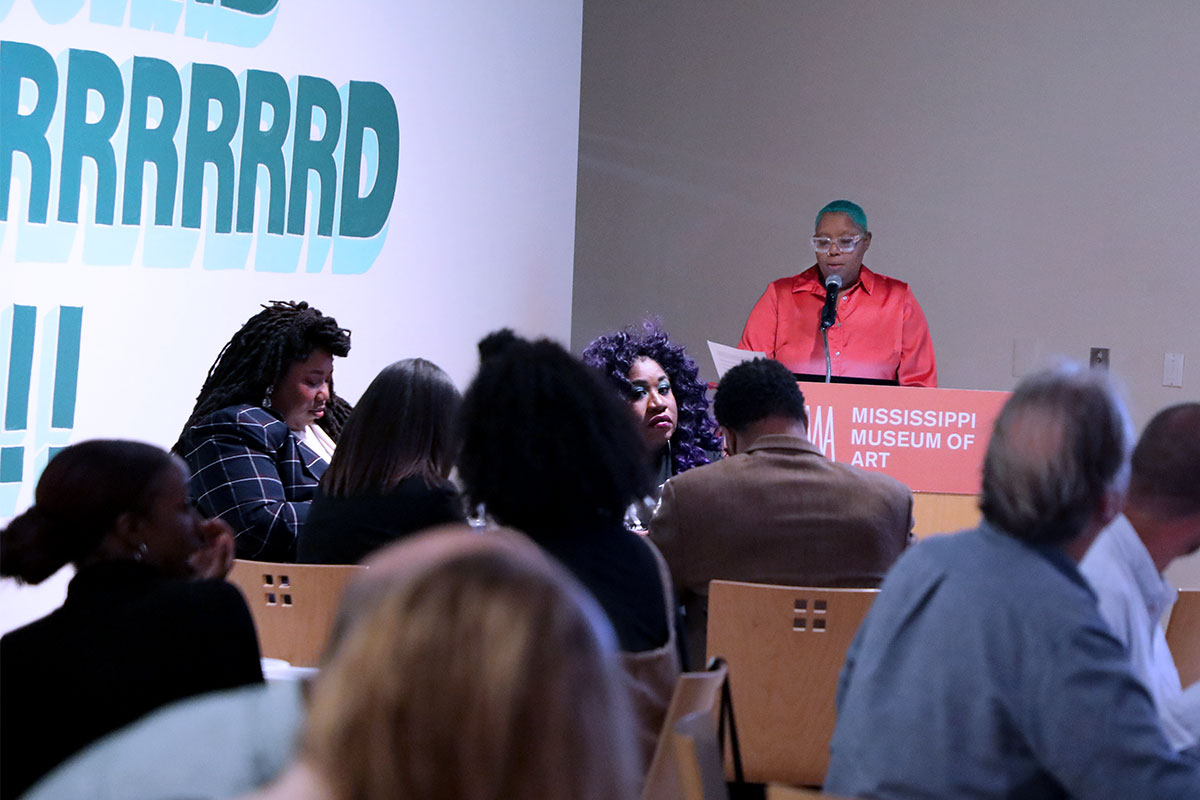
Meanwhile, Aurielle Marie’s mother made a big deal of sitting her and her siblings in front of a mirror and complimenting them on their features, but in high school she began to critique herself and have early feelings of self-hatred.
“When I think about internalized racism, I think about struggling with your features,” Marie said. “For me, it was my body and being brown-skinned instead of light-skinned. When I think about internalized racism, it’s just the lack of insulation. … Even then, I critique where the messages are coming from outside.”
Having safe spaces to help unpack those internalized feelings is important, Marie said. In those spaces, she asks herself whether she is safe, whether her needs are considered and whether those around her have her back.
“I think what you should ask yourself is, ‘Can I be my whole self with my whole village?’” she concluded.
‘The Jackson in Me’
As the trio’s panel came to a close, Kiese Laymon successfully reconnected over Zoom to offer final words to conclude the evening.
“It’s weird to come home and talk, especially now because folks away from home are really calling me a genius,” Laymon said. “I was legit born to a genius from Forest, Mississippi, named Mary Coleman, and that genius was born 19 years earlier to a genius named Catherine Coleman.”
“So the interesting thing about being called a genius in the world is that my grandmama and my mama demanded genius from me,” he continued. “I was just real hard-headed, and I didn’t give them what they wanted. … But I think the second weirdest part of folks calling me a genius is that I legit believe they right. I think that’s the Jackson in me.”
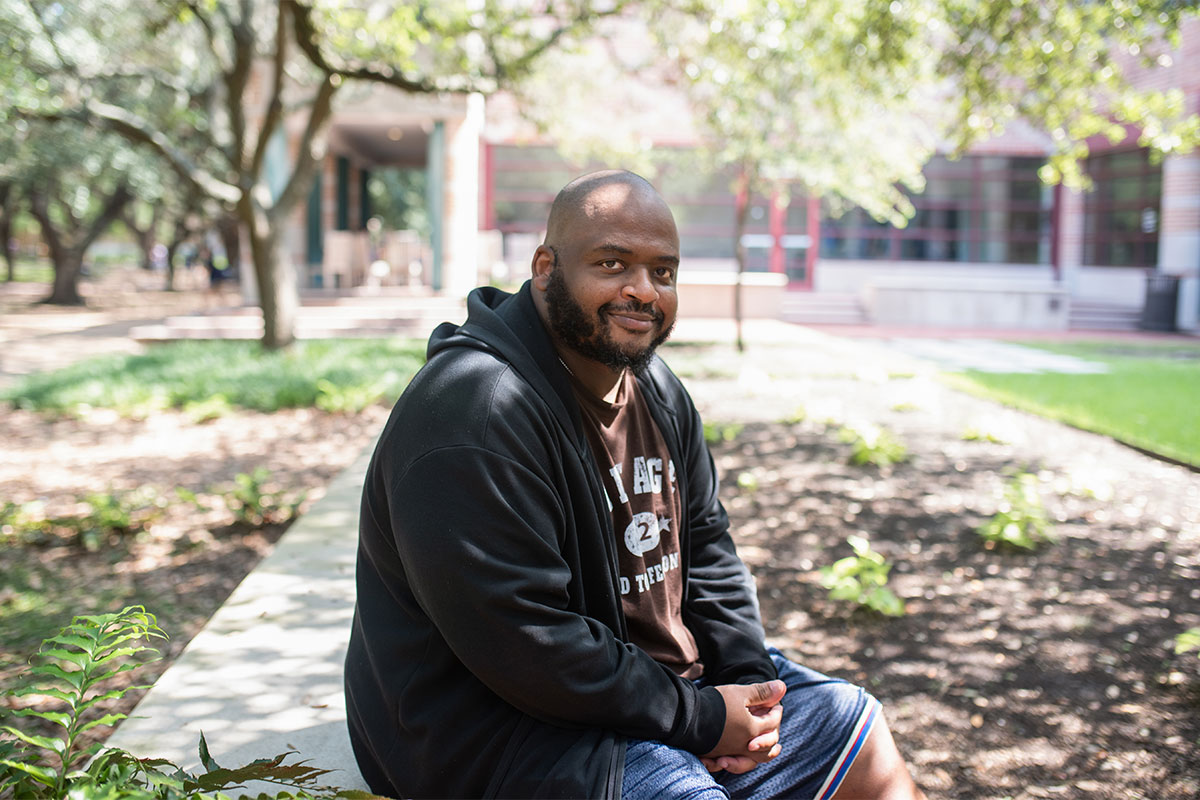
Despite his accomplishments and awards, the writer credits the homes that shaped him. His upbringing in Mississippi and Jackson, specifically, informed his commitment to a radical love of home, he said.
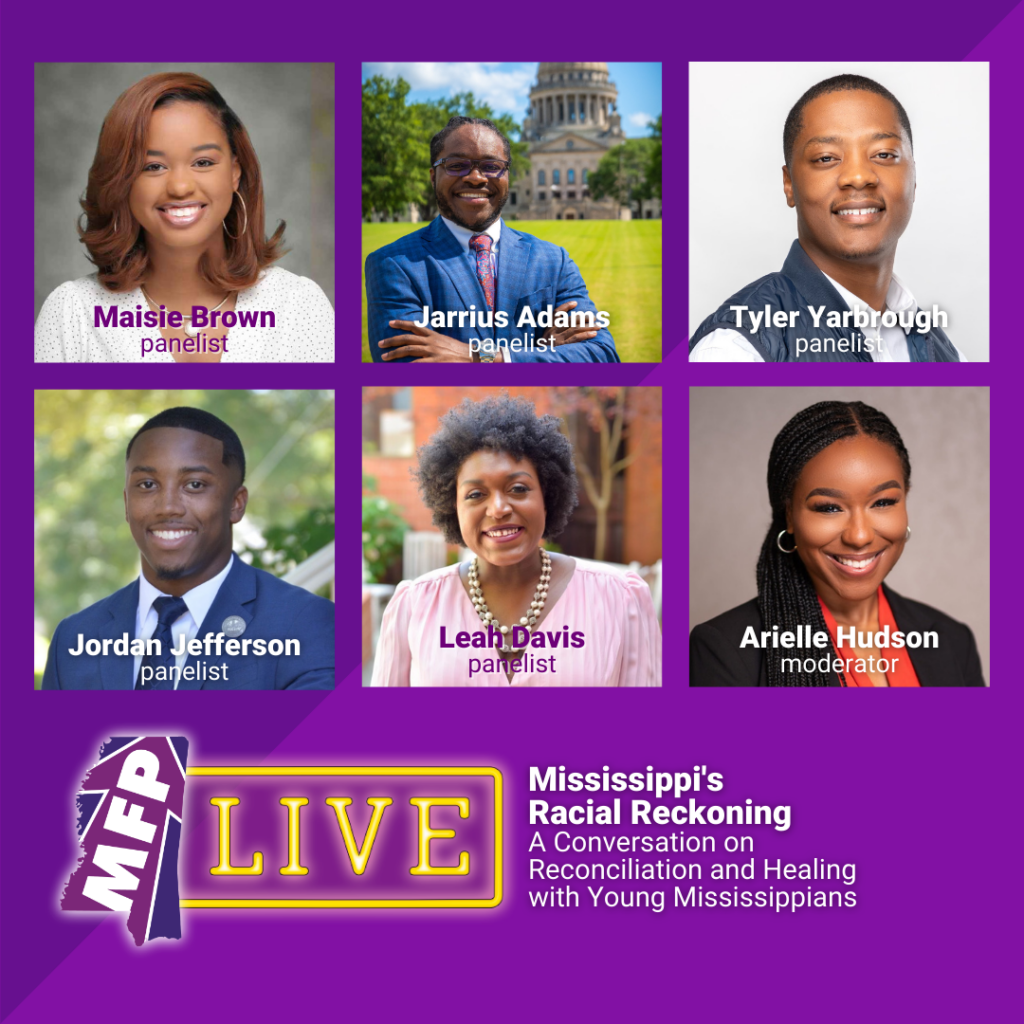
“I’ve been living in a lot of different places,” Laymon added. “I live in Houston now. A lot of different places don’t have history and the artistic richness that’s connected to a radical fight that we’ve had. And at my worst, I think that I’ve thought that we are the greatest writers in the world precisely because of the state’s relentless commitment to harm and humiliation.”
If the state had a more supportive infrastructure and wasn’t so committed to the harm and humiliation, particularly of Black and Brown folks in the state, the capital city might have five National Book Awards, Laymon suggested. What would happen if parents, teachers, politicians and everyone in between supported the artistic visions of our children, the writer asked.
“I’m really only concerned with making the artistic world of young Mississippians less harmful, less mitigating, less the worst parts of my journey,” Laymon said. “I think it’s OK to be sort of sentimental talking directly about our young people. So, I just want us to love our kids and their imagination, and I also just want to give us permission to be different.”
Editor’s note: The W.K. Kellogg Foundation is a financial supporter of the Mississippi Free Press, but it had no influence on this feature.

